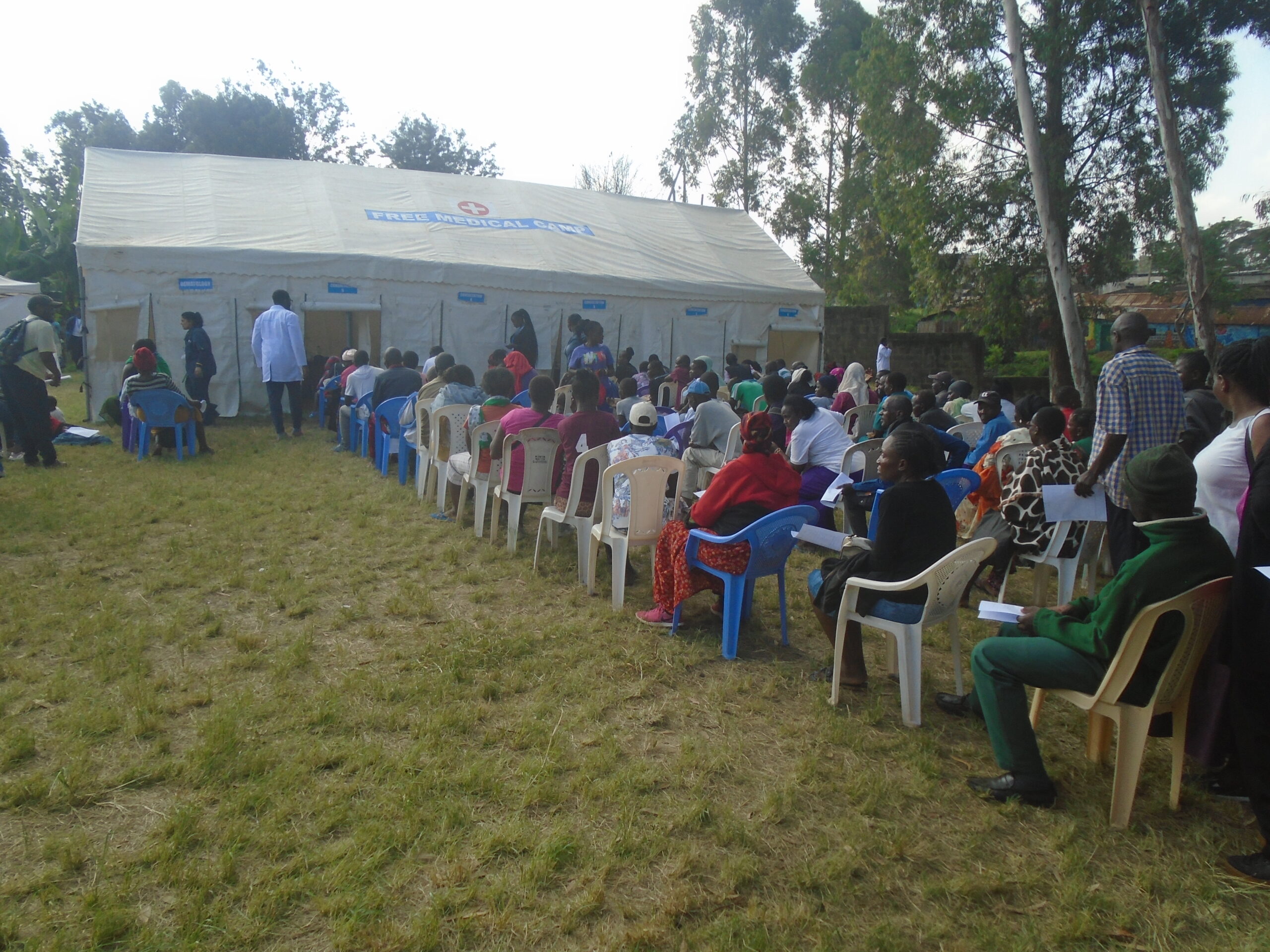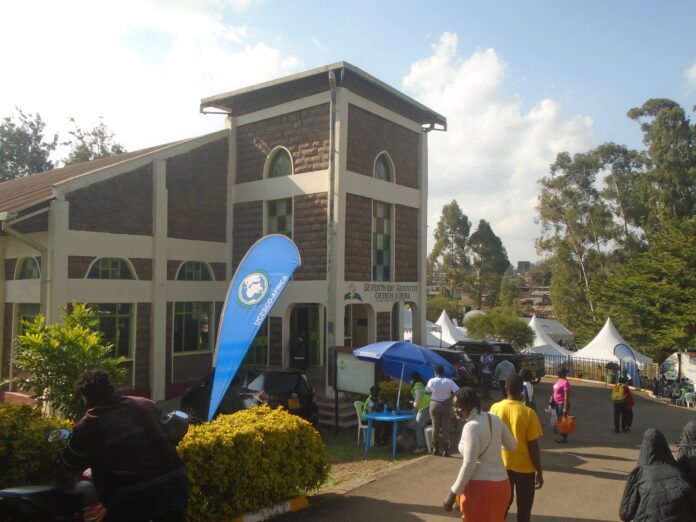By Henry Owino
Nairobi, Kenya: There’s a saying: “Prevention is better than cure,” which means it’s better to be safe than sorry. Knowledge is powerful and information is liberating, and the Bible asserts that many people perish due to a lack of knowledge.
To address this issue, the Church Leadership of Seventh Day Adventist in Kenya has enlisted its health professional members to lead a campaign against drug and substance abuse among the congregation. Many members are either unaware of the dangers of drugs or are silently suffering and struggling, trapped by their circumstances in the name of Christian sanctity.
Christians are part of society and are, therefore, normal human beings capable of sinning. Becoming accustomed to a particular environment over time makes it easy to assimilate its lifestyle. Many residents of urban informal settlements are more exposed to various drugs and substance use and abuse.
These behaviors are widespread in such communities, which include a diverse mix of people: religious individuals, atheists, traditionalists, magicians, drug peddlers, and more. Consequently, lifestyle choices are personal, just as Adam and Eve’s choices were in the Garden of Eden.

According to James Odero, a Church Elder at SDA, there is rampant drug abuse harmful to individuals, families and communities. Church members are not spared either as part of the society.
In reality, Odero revealed illegal use of drugs is prevalent in high density areas, especially in suburbs. So, as a church ministering to all people across the board, it organized a campaign against drugs and substance abuse to sensitize members, families and community to fight the scourge collectively.
“Through a sensitization campaign in the church, we are also ministering the word of God to thousands physically and via online platforms which is possible to transform the lives of addicts to receive salvation and live a healthy life,” Odero explains.
However, the church elder cautioned expanded access to many forms of hard drugs is a potential pathway for youths opting to experiment. Frequent use eventually turns to increased misuse leading to abuse and finally addiction with a number of associated risks.
To avert the misplaced priority lifestyle of the current generation engaging in drug abuse, Seventh-Day Adventist (SDA) Church, Kibera Main, took it upon itself as a burden to address. The church therefore, organized for a week-long (19-25 May, 2024) sensitization on drugs and substance abuse targeting its own members and community at large.
Odero disclosed with approval of the church pastorate and eldership with consultation of Health and Temperance Ministries Department, they agreed to run campaign against drug abuse in church pulpit for congregants and community.

The week-long health awareness campaign against drugs and substance abuse themed: “You Are An Overcomer”. The inspirational slogan meant to encourage persons infected or affected that there is still hope to walk out of drugs abuse.
Margaret Kagwa, Gender Coordinator at Shofco and team leader of Health Ministries Department at Kibera Main SDA Church, said drugs and substance abuse does not discriminate on the basis of faith. Any person is capable of abusing drugs regardless of their religion or creed, race, gender, age, ethnicity, culture, education level among other social status in the community.
Mrs Kagwa said drug abuse is a monster, more so among the current generation of young people which calls for a collaborative effort to fight. She reiterated that within worshippers, families, residential places, communities and even at work places, there are people infected or affected by drug addiction.
She explained, the essence of anti-drugs campaign awareness week at the church, was to equip worshippers with information to help disseminate it to the public , especially the community around Kibera. This is because charity begins at home and information is gold.
“Information is gold. If we have information and knowledge to address the monster of drug and substance abuse within ourselves, family level, church and residence, then reaching out to larger communities becomes very easy,” Mrs Kagwa clarifies.
Families are crying out of their children’s addiction to drugs, communities equally complaining of society decay where drugs and substance abuse is the norm. Concerns about future generations worries the elderly, clergy and government in equal measure.
This follows rising cases of mental health disorders in Kenya mainly as a result of drug abuse. The month of May is dedicated as Mental Health month to encourage the public to seek for screening, treatment, guidance and counseling as a recovery course.
Causes of Drug Use and Abuse
The guest speaker of the week, Zadock Omondi, an experienced Clinical Officer, and member of Zimmerman SDA church, guided congregants on the root causes, effects and solutions to drugs and substance abuse and addiction.
The main cause of drug abuse is peer pressure, a strong factor in starting to use and misuse of drugs, particularly for young people. Lack of family involvement, difficult family situations or lack of a bond with parents or siblings may increase the risk of addiction and lack of parental supervision.
“The way we bring up our children can greatly affect a person’s likelihood of drug use and addiction. For example, children whose parents are on drugs, it is very easy for them to become prey due to accessibility or lifestyle in the family,” Omondi cautions.
It is regrettable for absentees’ parents who are ever too busy with their jobs that they have no time for children’s welfare. In such families, children or teenagers will abuse any drugs or substance without fear assuming that they are on their own and free to do anything without parents questioning.
Peer pressure is the greatest problem facing teenagers as they influence each other. As age-mate friends, they encourage one another to do things that they may be resistant to, or might not otherwise choose to do so as to be accepted in the same company.
“Peer pressure is a direct or indirect influence on peers, thus members of social groups with similar interests, experiences, or social statuses. Members of a peer group are more likely to influence a person’s beliefs, values, religion and behavior,” the Clinical Officer explains.

“Nowadays many children get information from social media platforms through friends, family members or relatives showing pictures of drugs and substance use. The teenagers will always want to try out of curiosity to feel what they have watched and, in the process, they gradually get used to it,” he further clarifies.
The likelihood of such children continuously using and abusing drugs is very high. Unfortunately, drugs abuse is very addictive once you start it, getting out of it is extremely difficult.
Effects of Drug and Substance Abuse
Many drug abusers have long term health impacts such as loss of normal body functions ability. Drugs don’t just affect users’ physical body and health, it can affect one’s mental health, finances, relationships, social life and even criminal record.
So, drugs have different effects depending on the drug itself, the person taking it and their surroundings. Depending on how the users’ body processes drugs, some abusers will have short-term while others long-term effects.
For instance; short term effects of drugs include; increased attention and decreased fatigue, increased physical activity and wakefulness, decreased appetite, rapid heart rate or irregular heartbeat, increased blood pressure, elevated body temperature(hyperthermia), and convulsions may occur for overdose, and if not treated immediately, can result in death.
On the other hand, long term health impacts of misuse or abuse of drugs leads to addiction especially on popular drugs like; alcohol, marijuana, opioids, heroin and cocaine. These drugs have devastating effects on major body organs such as; liver, kidney, heart and other types of cancer problems depending on the type of drug used and how frequently it is used.
Apart from devastating physical and mental health effects of drugs, it also causes dental health problems such as cavities and gum diseases. Again, dependence on drugs(addiction) as well is a disease that leads to losing control over one’s actions.
“For example, drug addicts will always crave and seek out drugs, alcohol, or other substances no matter what it costs them, even at the risk of damaging friendships, hurting family, losing jobs and death bed,” Omondi regrets.
Therefore, misuse or abuse of any drugs and other substances can affect not just your physical and mental health, but your whole life. Remember that just one pill can kill you.
Possible Solutions of Drugs Abuse and Addiction
Omondi emphasized on parental guidance and care as the main factors which may allow children and teenagers to engage or not to involve themselves on drugs. Referring to the Scripture, Proverbs 22:6, “Train up a child in the way he should go and when he is old he will not depart from it”, the guest speaker challenged parents on their roles.
He listed other preventive factors such as resisting peer pressure, abstaining from drug use and living a healthy balanced lifestyle. Seeking professional help, fostering strong family relationships, taking time for selfcare, and learning healthy coping skills.
Obtaining education on the dangers of drugs and substance abuse, taking only prescribed medication, and practicing mindfulness activities. Above all, it is better to stop an illness from occurring than it is to treat it after it has happened.
One can also reach out to NACADA on toll free helpline 1192 across all networks open 24/7 daily. Trained professional helpline counselors provide adequate information on alcohol and drug abuse.
In winding up the health awareness month, UCESCO Africa offered a free medical camp at Kibera SDA church grounds on 27-31 May 2024. Most non-communicable diseases were screened, treated by nurses and physicians while residents with complicated health problems were given appropriate referrals.














